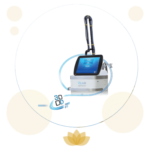
Addiction is a complex and challenging disease that requires a comprehensive and sustained effort to overcome. One of the most critical components of addiction recovery is goal-setting. Setting achievable goals in addiction recovery is essential because it helps individuals focus their efforts, measure their progress, and build confidence in their ability to overcome their addiction. In this blog post, we will discuss the importance of setting achievable goals in addiction recovery and provide practical tips for setting and achieving these goals.
Goals provide direction and motivation
When people set achievable goals in addiction recovery, they are creating a roadmap for themselves. Subutex medication assisted Goals help individuals to focus their efforts on specific tasks or objectives, and they provide a sense of direction and purpose. They also provide motivation to keep working towards recovery, even when the journey becomes difficult. Goals can be a source of inspiration, reminding people why they started the recovery process in the first place.
Goals help measure progress
Achieving recovery is not a quick or easy process. It can be challenging to see progress when people are in the midst of the journey. However, setting achievable goals provides a way to measure progress. By breaking down recovery into smaller, achievable steps, individuals can track their progress and celebrate their successes along the way. This helps to build confidence and momentum, making it easier to continue to work towards recovery.
Goals build self-confidence
Addiction can erode a person’s self-confidence and sense of self-worth. Setting and achieving achievable goals in recovery can help to rebuild this confidence. As people achieve their goals, they realize that they are capable of achieving success, and their self-confidence grows. This increased confidence can be an essential tool in the recovery process, helping individuals to stay motivated and committed to their goals.
Tips for setting achievable goals in addiction recovery
- Start small
- Make goals specific and measurable
- Focus on the process, not just the outcome
- Be flexible
- Get support







